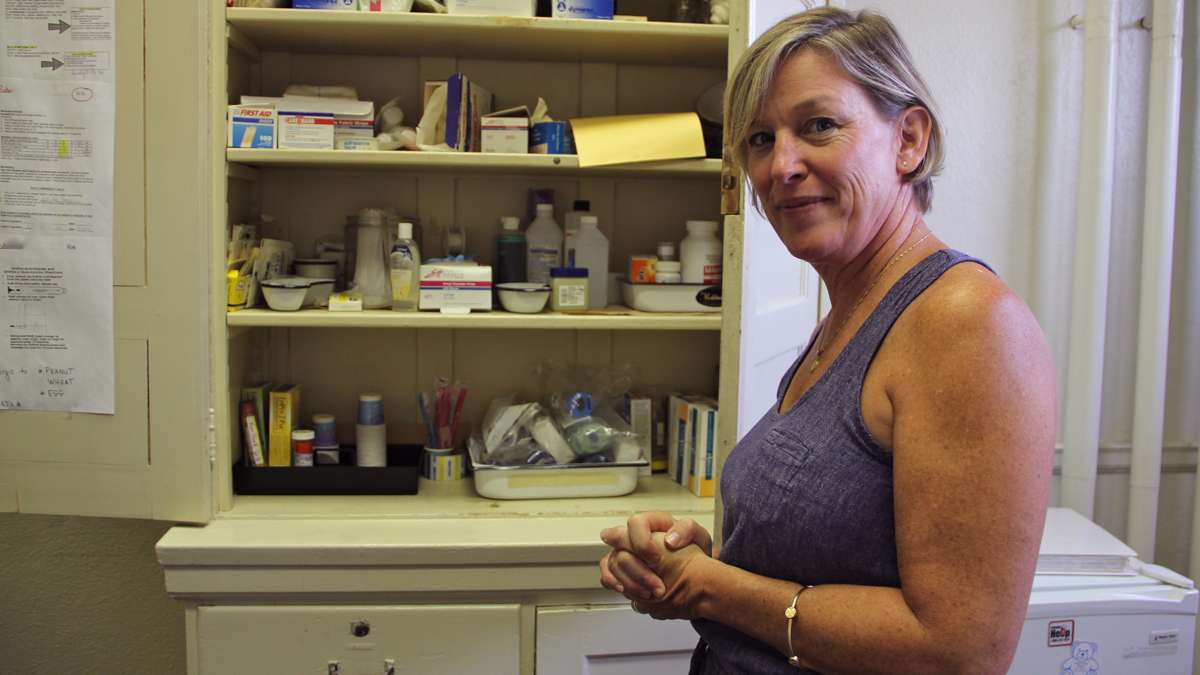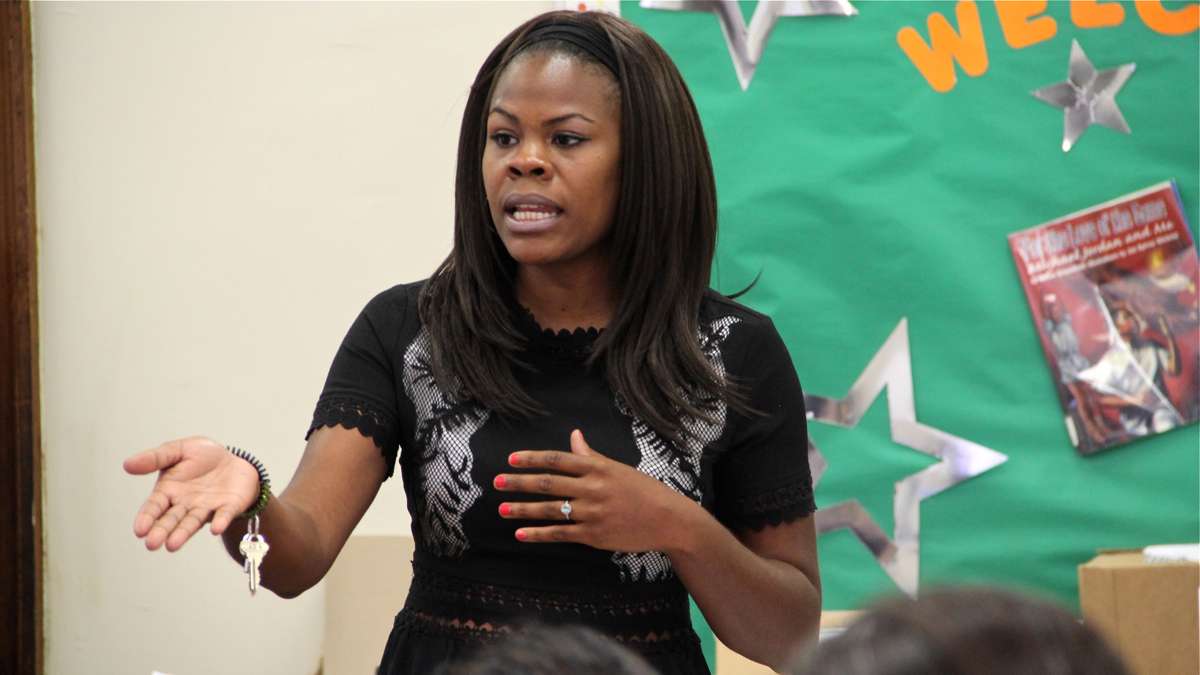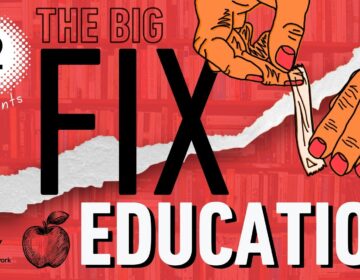In Philadelphia, another school year begins in crisis
ListenHere we go again.
The Philadelphia School District opens its doors today, and, for the second year in a row, district leaders admit that resource levels are nowhere near sufficient. Children, they say, will not get the thorough and efficient education they’re promised by the Pennsylvania Constitution.
Schools this year will, in fact, have less.
Students will again find overcrowded classrooms and a shortage of guidance counselors and nurses.
Teachers will again be expected to pay for supplies out of pocket and achieve student gains, despite minimal supports.
Principals will again find little discretionary funding in their budgets and will now make due with fewer school police officers, reduced building maintenance and cuts to special education.
When the district adopted its “doomsday budget” last summer, there was mass protesting in the streets. The teachers union shut down North Broad Street. Students banded together to demand better treatment.
Some additional funding trickled in, but overall resource levels remained dismal.
This year, as the district’s expenses grew (charter payments, pension costs, etc…) and last year’s one-time funding fixes disappeared, Superintendent William Hite warned of an “empty-shell” scenario where class sizes districtwide would balloon to untenable levels.
In the face of this possibility, advocates directed their attention to the passage of the Philadelphia cigarette tax, which is expected to generate tens of millions for schools annually.
The legislature failed to pass it this summer, but lawmakers say they’ll do so by mid-September.
Instead of truncating the school year – which Hite claimed for a time was a legitimate possibility – the district has chosen to take the politicians at their word.
But if cigarette tax money doesn’t start flowing by October, more layoffs are likely on the horizon.
In the meantime, the district has again called for the Philadelphia Federation of Teachers to agree to a new contract that includes health care concessions and work-rule changes. The PFT contract expired at the end of August 2013.
Making it work at Nebinger
Despite the funding crisis, some schools have succeeded more than others in finding ways to shield their students from the brunt of the cuts.
“My teachers won’t allow the students here to feel that we’re in a crisis,” said Nebinger Elementary Principal Ahn Brown. Students know because they “hear it on the news,” she said, “but if you step into Nebinger, you would never know.”
Located in South Philadelphia’s attractive and rapidly up-and-coming Bella Vista neighborhood, Nebinger, unlike some schools, has seen consistent enrollment growth.
Although the school serves a population that’s 90 percent economically disadvantaged, Nebinger developed a slate of community partnerships that has bolstered the school with private funding.
Between Friends of Nebinger, Nebinger Home and School, Bella Vista Neighbors Association, Mother Bethel African Methodist Church and other organizations, the school received $10,000 last year.
As the school year starts, Principal Brown says she’s short on textbooks and that many of the school’s laptops are unusable because she doesn’t have the money to replace the batteries.
But these are problems she knows she’s lucky enough to be able to resolve.
“My community partners are saying, ‘Whatever you need, let us know. Give us your wish list. And then we’re going to figure out how we’re going to support the school,'” she said.
This, of course, isn’t the reality for most schools in the city. Many of the district’s schools serve neighborhoods and families that simply don’t have the means to make up for funding gaps.
It’s here that the funding crisis has widened the difference between the city’s ‘haves’ and ‘have nots,’ an inequity which Brown is quick to lament.
“All schools should have enough funding to basically run the school effectively,” she said, regardless of location.
A real-world example: The district said it could afford to provide Nebinger with a guidance counselor for only half the week. So Brown used some of her operating fund to cover the cost of a full-time counselor, knowing that her community partners would help cover supplies and other expenses.
While many students this year won’t have a full-time counselor in their building, those in Nebinger will.
‘Winging it’
Even with these extra supports, Nebinger still will have nowhere near the resources that the large majority of schools across the country take for granted.
Without a librarian, the school library will be out of commission, save for a few days a month when a volunteer can be secured.
The nurse’s office, too, will be closed four of five days per week.
School nurse Ann Kennan will split her time between Nebinger, Sharswood Elementary, Andrew Jackson Elementary, The Workshop School and another location to be determined.
For most of the week, the schools will not have a dedicated trained medical professional on the premises.
As the sole nurse for 1,600 children at five schools, Keenan says, unequivocally, the students will not be given the care they deserve.
“I almost feel like I’m enabling bad behavior by coming to work,” she said, “knowing that these kids are really missing out on any quality, consistent health care or support.”
Mere days before the first day of school, Keenan appeared visually shaken at the thought of going through another year like last.
“It really does feel like we’re winging it, and that’s wrong,” she said. “I know it’s wrong, but, yet, I participate.”
Last year, two students died after leaving schools where there wasn’t a nurse on the premises.
One of those was at Andrew Jackson Elementary, a school assigned to Keenan, where a first-grader died suddenly of a rare congenital heart defect.
The day of the incident at Jackson, Keenan was assigned to Nebinger.
“You can’t help but feel responsible at some level,” she said. “That, ‘I should have been there, I could have been there, I wish I was there.'”
A CPR-trained aide was on hand that day to tend to the child and call 911. The 7-year-old was later pronounced dead at Children’s Hospital of Philadelphia.
Keenan remains haunted by the “what if?”
“Now there’s a question, and that’s an awful feeling, I would think, for parents and absolutely for staff who kind of stepped up, but certainly don’t feel that they were maybe fully equipped,” she said. “That’s an awful feeling for the rest of their lives.”
Keenan says the gap between how school nurses would “like to do it” and “how it is” has widened beyond everyone’s comfort. To cope, she’s adopted a philosophy heard often in the halls of Philadelphia’s schools.
“If you look at the big picture, you probably wouldn’t get out of bed,” she said. “So you just stay focused, prioritize, and do the best you can.”
WHYY is your source for fact-based, in-depth journalism and information. As a nonprofit organization, we rely on financial support from readers like you. Please give today.









